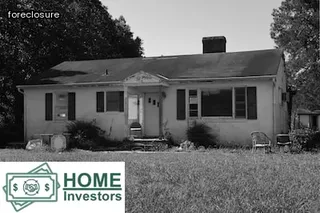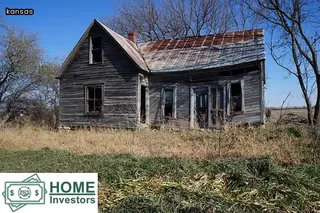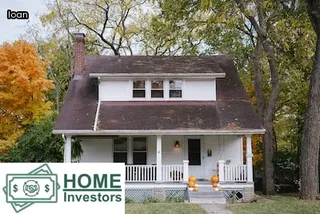Navigating foreclosure in Kansas can be a daunting and overwhelming process for homeowners. Understanding the laws and procedures involved is critical to saving your home from loss.
Kansas law requires that a homeowner receive notice of default before a foreclosure action begins, giving them an opportunity to bring payments current or negotiate with the lender to avoid foreclosure. The specific process varies depending on whether the loan is secured by a deed of trust or if it is secured by a mortgage.
Generally, lenders are required to send borrowers letters regarding their delinquency status, and if they fail to do so, they may not be able to proceed with the foreclosure action. It's important for homeowners in Kansas to know their rights during this process and understand how they can best protect their home from being taken away.
If a borrower believes that there has been an error or unfair treatment throughout the foreclosure process, they have the right to challenge it in court as well as investigate other options like refinancing or seeking assistance from state and federal housing programs. Knowing these details will help navigate through any legal proceedings associated with foreclosure in Kansas and save your home from loss.

Missing a mortgage payment in Kansas can have serious consequences, including the risk of foreclosure. Foreclosure is when a lender takes possession of a property after payments are no longer made on the loan.
When this happens, homeowners can be evicted and their credit ratings can suffer significantly. If foreclosure proceedings have already begun, there may still be options available to help save your home from loss.
It is important to understand what these are so that you can take the necessary steps to protect yourself and your family from the financial burden of losing your home. In some cases, working with an experienced lawyer or financial advisor may be helpful in navigating the complex foreclosure process in Kansas.
A breach letter is a document written by a homeowner in foreclosure which outlines their intention to reinstate their loan and/or modify it. The letter should detail the reasons for defaulting on the loan, any mitigating circumstances that may have led to the default, and the homeowner's plan for remedying the situation.
It is important to note that this document is not legally binding, but serves as a way to start negotiations between the homeowner and lender. The breach letter should be specific, factual, and emphasize commitment to paying back what is owed.
It should also include any documents that prove financial hardship or other mitigating circumstances. Ultimately, it serves as a way of beginning communication between both parties so they can come up with an arrangement that will prevent foreclosure and keep the home safe from loss.

If you are a homeowner in Kansas, it is important to understand the foreclosure process and what steps you can take to protect your home from loss. Foreclosure is the legal process that allows a lender to repossess a mortgaged property if the borrower is unable to make their mortgage payments.
In Kansas, foreclosure starts when the borrower has missed two or more monthly mortgage payments. The lender will send out a Notice of Default with information on how much money is owed and when it needs to be paid.
The notice also explains the consequences of not paying, which usually include foreclosure proceedings beginning within 90 days. After the Notice of Default is sent, homeowners have an opportunity to work with their lender in order to prevent foreclosure.
However, if no agreement can be reached then the lender may begin legal action in order to reclaim the mortgaged property. It is essential for homeowners in Kansas to know their rights and obligations when it comes to foreclosure so they can take action as soon as possible in order to save their home from loss.
Navigating the foreclosure process in Kansas can be complicated and confusing. It is important for homeowners to understand their rights and the laws in Kansas that protect them from potential foreclosure.
Foreclosure in Kansas is a legal procedure that allows lenders to take possession of a property when the homeowner defaults on their mortgage payments. The state has specific laws that must be followed by lenders during the foreclosure process, including giving notice of delinquency, issuing a Notice of Intent to Foreclose, holding a hearing before commencing with foreclosure proceedings, and allowing homeowners an opportunity to cure their default before auctioning the property.
Additionally, it is important to note that there are various protections under federal law that provide relief for those facing foreclosure such as forbearance programs and loan modification options. Homeowners should always familiarize themselves with both state and federal protections when exploring options to save their home from loss due to foreclosure.

When facing a foreclosure in Kansas, homeowners may be able to reinstate their mortgage before the sale. One strategy is to apply for a loan modification, which can lower the monthly payments and help make the mortgage more affordable.
Another option is to negotiate with the lender for a repayment plan or forbearance, which allows the homeowner to make up missed payments over time. Homeowners can also contact HUD-certified housing counseling agencies or non-profit organizations that offer free legal advice on foreclosure proceedings and strategies.
Additionally, they should consider talking to local lenders who could provide alternative financing options such as refinancing or bridge loans. Finally, if all else fails, filing for bankruptcy may be an option that will protect homeowners from losing their home while they work out a solution with their lender.
Navigating a foreclosure in Kansas is challenging, but there may be options that can help you save your home from loss. One option to consider is the redemption period after a foreclosure sale.
This period allows a homeowner who has had their home sold at a foreclosure sale to reclaim it by paying the full amount due on their loan, plus any related costs and fees. The redemption period in Kansas lasts for one year, so if you act quickly, you may be able to regain ownership of your property.
It’s important to remember that you must pay the full amount due on your loan during this period or else the sale will become final and all rights will transfer to the new owner. There are also special rules governing redemption periods after foreclosure sales in certain cases, such as military service members and those affected by natural disasters, so make sure to check with an attorney or other qualified professional before making any decisions about redeeming your home.

Examining preforeclosure processes under Kansas law is key to navigating foreclosure in the state. Kansas law has specific steps that must be followed in order for a home to enter into foreclosure.
Understanding these steps as well as the potential consequences of not following them can help homeowners in Kansas save their homes from loss. In most cases, lenders are required to send out a Notice of Default and Right to Cure, which outlines the amount owed and allows homeowners time to bring their accounts current.
During this period, lenders may also be willing to negotiate with borrowers on payment plans or loan modification agreements. If all attempts fail, the lender will then file a Notice of Sale and set a date for auctioning off the property.
These notices must be properly served and advertised before an auction can take place. Homeowners should also be aware that they still have certain rights during the preforeclosure process, such as challenging an erroneous foreclosure notice or filing for bankruptcy protection.
Taking advantage of these rights can provide additional time and options when trying to save your home from foreclosure in Kansas.
Navigating foreclosure in Kansas can seem daunting, but understanding the process of foreclosure is an important step to take if you’re looking to save your home from loss. In Kansas, the foreclosure process generally begins with the lender sending a notice of default to the borrower via certified mail or posting it at their home.
The borrower then has 90 days to repay the loan in full or enter into a loan modification agreement with their lender. If no resolution is reached within this period, the lender may file for a foreclosure sale and repossess the property.
After filing, the court will issue a summons and post notice of sale on the homeowner’s door and/or publish it in a newspaper of general circulation. The homeowner then has 20 days to act before an auction takes place where buyers can bid on the property.
If no bids are received, the lender can take possession of the home and sell it at another time. Throughout these steps, it’s important for homeowners to stay in contact with their lenders and understand their options in order to find potential solutions that could save them from losing their home.

Navigating foreclosure in Kansas can be a daunting task for homeowners, but with the right steps it is possible to save your home from loss. The most important thing to do is understand the foreclosure process and stay educated about the laws and regulations in your state.
To begin, research resources in your county that provide foreclosure prevention services and legal support. Additionally, contact a HUD-approved counseling agency who can assist you in understanding your rights and obligations during the foreclosure process.
Talk to your lender as soon as you know you are facing financial problems so that they are aware of what is happening and can work with you to find an alternative solution. Consider loan modification options or short sales if necessary, but remember that these should only be taken as last resorts.
Finally, reach out to family or friends who may be able to help financially in order to keep up on payments or make a lump sum payment to catch up on any delinquent amounts. By taking these steps, homeowners can take control of their situation and ultimately save their home from loss due to foreclosure.
When navigating foreclosure in Kansas, it is important to understand the state's deficiency judgment laws. These laws dictate when and how a deficiency judgment can be issued against a borrower in the event that their home is foreclosed.
In Kansas, lenders must file for a deficiency judgment within one year of the foreclosure sale; if they wait longer than this time period, they will lose the right to pursue a deficiency judgment. Lenders must also prove that the foreclosure proceeds were not sufficient to cover the loan balance and all associated costs.
Additionally, Kansas law states that no deficiency judgment can be issued against certain types of properties, such as those purchased with an FHA loan or VA loan. It is critical for borrowers facing foreclosure to understand these laws and how they apply to their situation in order to determine whether they might be subject to a deficiency judgment and what steps they should take in order to protect themselves from potential debt obligations after a foreclosure.

Kansas residents who are facing foreclosure have free resources available to explore before they lose their home. The Kansas Attorney General’s Office provides a booklet, “Navigating Foreclosure in Kansas,” which outlines the process and provides advice on how to avoid foreclosure.
Additionally, the Kansas Department of Housing and Urban Development offers housing counseling that can be used as an alternative to foreclosure. This service assists homeowners in understanding their options and developing strategies to keep their home.
In addition, the National Foreclosure Mitigation Counseling Program is available for those who qualify. This program offers counselors who are trained in foreclosure prevention and providing assistance with loan modification applications.
For those facing a financial crisis due to job loss or medical bills, the US Department of Agriculture offers programs that help with mortgage payments until income resumes. Lastly, there are several non-profit organizations across Kansas such as Just Homes KC that offer support for homeowners including legal services, financial education classes and access to government resources.
Navigating foreclosure in Kansas can be a difficult and overwhelming process. Fortunately, there are steps that homeowners can take to protect their homes from loss.
One of the most important benefits of following a checklist during foreclosures is being aware of your rights as a homeowner. It is essential to understand what legal options you have should you find yourself facing foreclosure.
Additionally, by having a list of all the necessary documents, forms and deadlines required for the process, it will ensure that you don’t miss any important details that could end up costing you later on down the line. Furthermore, researching potential loan modifications or other alternatives ahead of time can give homeowners more negotiating power when dealing with lenders or mortgage companies.
Having all this information at your fingertips can help make sure that you are taking all possible measures to save your home from being lost to foreclosure in Kansas.

Navigating foreclosure in Kansas can be a difficult process, especially for those who are unfamiliar with the laws and regulations surrounding the process. For this reason, it is important to understand what federal preforeclosure review periods are and how they can help you save your home from loss.
Federal preforeclosure review periods refer to a set amount of time before foreclosure where homeowners have the right to work with their lender and enter into a repayment agreement or other type of resolution. During this period, lenders are required to provide written notice to homeowners of their rights under the federal law and must consider any proposed solutions that may be offered.
Additionally, state law may provide additional protection for homeowners facing foreclosure in Kansas, including mediation programs and additional pre-foreclosure notices. Understanding these federal preforeclosure review periods and utilizing all available resources can give homeowners a better chance of avoiding foreclosure in Kansas while preserving their home.
Navigating foreclosure in Kansas can be a difficult and daunting process, but understanding the laws and procedures associated with it can help protect your home from loss. According to Kansas law, homeowners who fail to make their mortgage payments for an extended period of time may be subject to foreclosure.
When this happens, the lender may file a Notice of Default with the county court in which the property is located, informing all interested parties that the property has been foreclosed upon. A homeowner then has 20 days from the date of filing to either pay off their arrears or enter into an agreement with the lender to avoid foreclosure.
If no action is taken by this date, a sheriff sale will be scheduled and the property will be sold at public auction. Homeowners do have certain rights under Kansas law, however.
For example, they are entitled to receive notice of any pending sale and may be able to stay in their home during the foreclosure process if they remain current on their payments. Additionally, borrowers have certain protections related to loan modifications and repayment plans that can help them keep their homes out of foreclosure.
Understanding these laws and procedures is key when it comes to navigating foreclosure in Kansas and protecting your home from loss.

When it comes to navigating foreclosure in Kansas, there are pros and cons to letting your house go into foreclosure. To avoid or delay a foreclosure, loan modification or refinancing may be an option.
Before filing for bankruptcy to stop a foreclosure in KS, there are 18 steps that should be taken. Short sales can also be utilized as an alternative to letting the house go into foreclosure in KS.
When handling liens and judgments during a real estate transaction in Kansas, it is important to understand how they interact with each other and what the best course of action might be for your individual situation. It is also important to know the laws governing lien priority in the state of Kansas when considering a short sale as an option for dealing with a foreclosure.
Foreclosure in Kansas typically takes up to six months from the time a homeowner is served with a summons and complaint. This process begins when the lender files a lawsuit against the homeowner for failure to make mortgage payments.
The homeowner is then given an opportunity to respond to the lawsuit and make arrangements for payment of any past due amounts. If no agreement is reached, the foreclosure process continues with a court hearing where the judge will determine if foreclosure is appropriate.
After that decision has been made, a sale date is set and notices are posted informing potential buyers of the upcoming sale. Finally, on the day of sale, ownership of the home transfers to the highest bidder at public auction.
It's important for homeowners in Kansas to act quickly if they're facing foreclosure so they can take advantage of available resources that could help them save their home from loss.

When homeowners face financial hardship, they may find themselves unable to make their mortgage payments. This can cause their home to enter foreclosure, a process that can be difficult and emotionally challenging.
Many people who go through foreclosure do so because they simply do not understand the options available to them or how to navigate the foreclosure process in Kansas. Common reasons why homeowners let their houses go into foreclosure include job loss, medical expenses, divorce, death of a spouse, and other financial burdens that prevent them from making mortgage payments on time.
In some cases, a homeowner may simply be unable to afford the house anymore due to rising living costs or an increase in interest rates. In order for homeowners to save their homes from being lost forever, it is important for them to have access to resources and information about navigating foreclosure in Kansas so that they can take action before it is too late.
Foreclosure in Kansas is a legal process that allows lenders to take ownership of property when a borrower defaults on their mortgage payments. This process begins with the lender sending a Notice of Default to the homeowner, informing them that they have failed to make payments.
After this notice has been sent, the lender can then initiate a foreclosure action in court and obtain an order for sale of the property. Once this order has been granted, the homeowner must vacate the premises within 30 days or face eviction.
The foreclosure will be completed once the property is sold at auction, and all proceeds from the sale go towards paying off the remaining debt. It's important for homeowners in Kansas to understand how foreclosure works so they can take steps to avoid it and save their home from loss.
Foreclosure can be a difficult and complex process, but it doesn't have to lead to the loss of your home. Navigating foreclosure in Kansas is possible with the right information and resources.
Knowing how to get out of foreclosure in Kansas is key - there are several steps that you can take if you're facing foreclosure. First, contact your lender and discuss any potential options like loan modification or refinancing.
Additionally, look into local assistance programs, such as those offered by the Kansas Housing Assistance Program (KHAP), for additional help. You may also want to speak with a housing counselor, who can provide guidance on understanding all of your options and finding the best path forward.
Finally, try to get organized and make sure all your paperwork is in order before meeting with lenders or counselors. With these tips in mind and a little bit of effort, avoiding foreclosure in Kansas is possible - don't give up hope!.
A: In Kansas, lenders are required to provide homeowners with a notice of default and a right to cure, which gives an opportunity to make up any missed payments to avoid going into foreclosure. The homeowner has 90 days from the date of the notice to make up the missed payments. Additionally, it is important to understand that foreclosure procedures vary depending on whether your mortgage is secured by a deed of trust or by a judicial proceeding. Homeowners may also want to research Financial Assistance Programs for Homeowners in Kansas that can help them save their home from loss.
A: The primary option to avoid foreclosure in Kansas is to contact your lender and discuss a loan modification. This could involve a reduction in the interest rate, an extension of the loan term, capitalization of past due amounts, or a combination of these. Additionally, you may be able to pursue refinancing options with another lender or enter into a repayment plan with your current lender. Finally, you may be eligible for assistance from state programs such as the Kansas Hardest Hit Fund or the Mortgage Assistance Program.